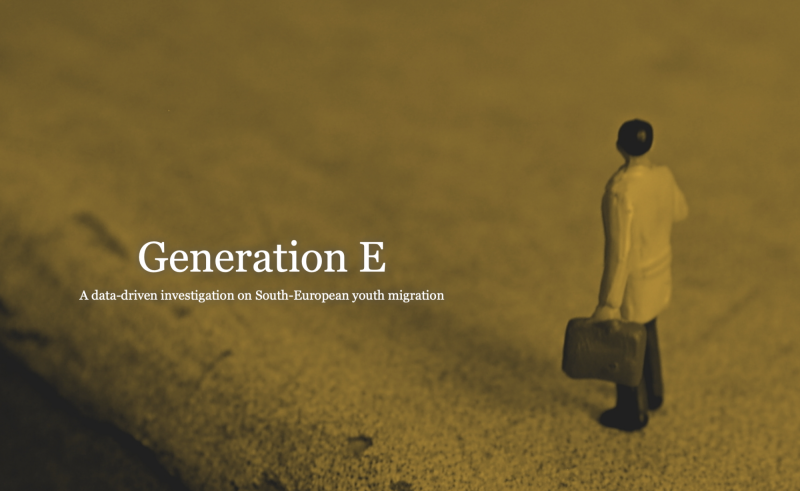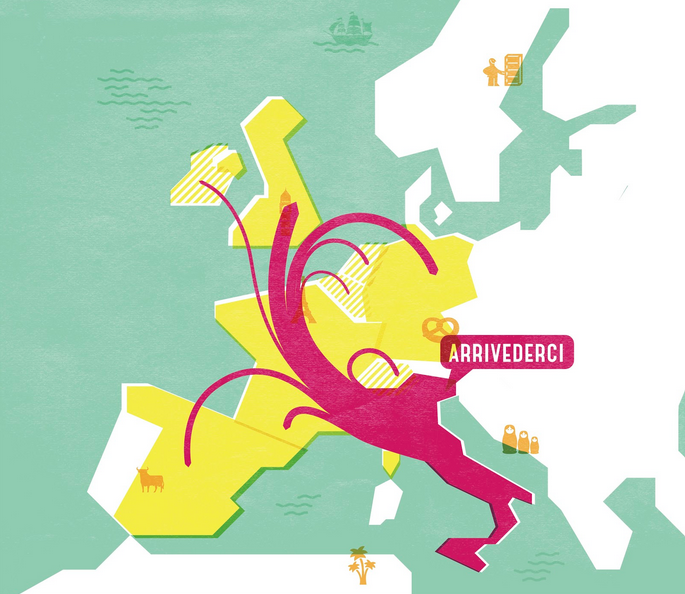Through crowdsourcing, they collected thousands of stories of southern European expats, their educational level, the driving factors behind their choice, their inclination to return home and their personal story.
Intra-European migration flows are complex to investigate, mainly because young migrants tend not to document their journey, which was confirmed by the journalists' findings that 43% of Generation E respondents declared not to have registered to the consulates and foreign offices of their countries. That means that hundreds of thousands of migrants do not get counted in the official statistics.
One of the main aims of the project is to tell the migrants' stories not only of the countries they are from but also of those where they moved to. Generation E is the first pan-European data journalism project on European youth migration aimed at adding insight and value to existing datasets, highlighting the lack of official pan-European studies and telling real stories of real people.
Why Generation E? The E stands for Expat, Erasmus, Exilium, Exodus, Escape as well as e-mail and a well-known low-cost airline. And for Europe, of course. All of the above are concepts that the authors believe portray this generation of European citizens.









